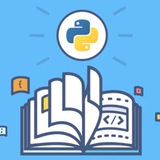tg-me.com/python_job_interview/1104
Last Update:
🐍 Задача с подвохом на Python. Что выведет данный код?
def update_dict(key, value, d={}):
d[key] = value
return d
dict1 = update_dict('a', 1)
dict2 = update_dict('b', 2, {})
dict3 = update_dict('c', 3)
print("dict1 =", dict1)
print("dict2 =", dict2)
print("dict3 =", dict3)
— Варианты ответа:
A.
dict1 = {'a': 1}
dict2 = {'b': 2}
dict3 = {'c': 3}B.
dict1 = {'a': 1, 'c': 3}
dict2 = {'b': 2}
dict3 = {'a': 1, 'c': 3}C.
dict1 = {'a': 1}
dict2 = {'b': 2}
dict3 = {'a': 1, 'c': 3}Какой из этих ответов правильный и почему?🧐
— Подсказка:
В функции update_dict параметр d={} создается один раз и используется для всех вызовов, где не передается явно другой словарь.
— Правильный ответ:
Объяснение:
1️⃣ dict1 = update_dict('a', 1) → используется словарь по умолчанию → {'a': 1}
2️⃣ dict2 = update_dict('b', 2, {}) → создан новый словарь → {'b': 2}
2️⃣ dict3 = update_dict('c', 3) → снова используется исходный словарь → {'a': 1, 'c': 3}
4️⃣ dict1 тоже изменится, так как это ссылка на тот же объект → {'a': 1, 'c': 3}
Итоговый вывод:
dict1 = {'a': 1, 'c': 3}
dict2 = {'b': 2}
dict3 = {'a': 1, 'c': 3}
@python_job_interview
BY Python вопросы с собеседований
Warning: Undefined variable $i in /var/www/tg-me/post.php on line 283
Share with your friend now:
tg-me.com/python_job_interview/1104
